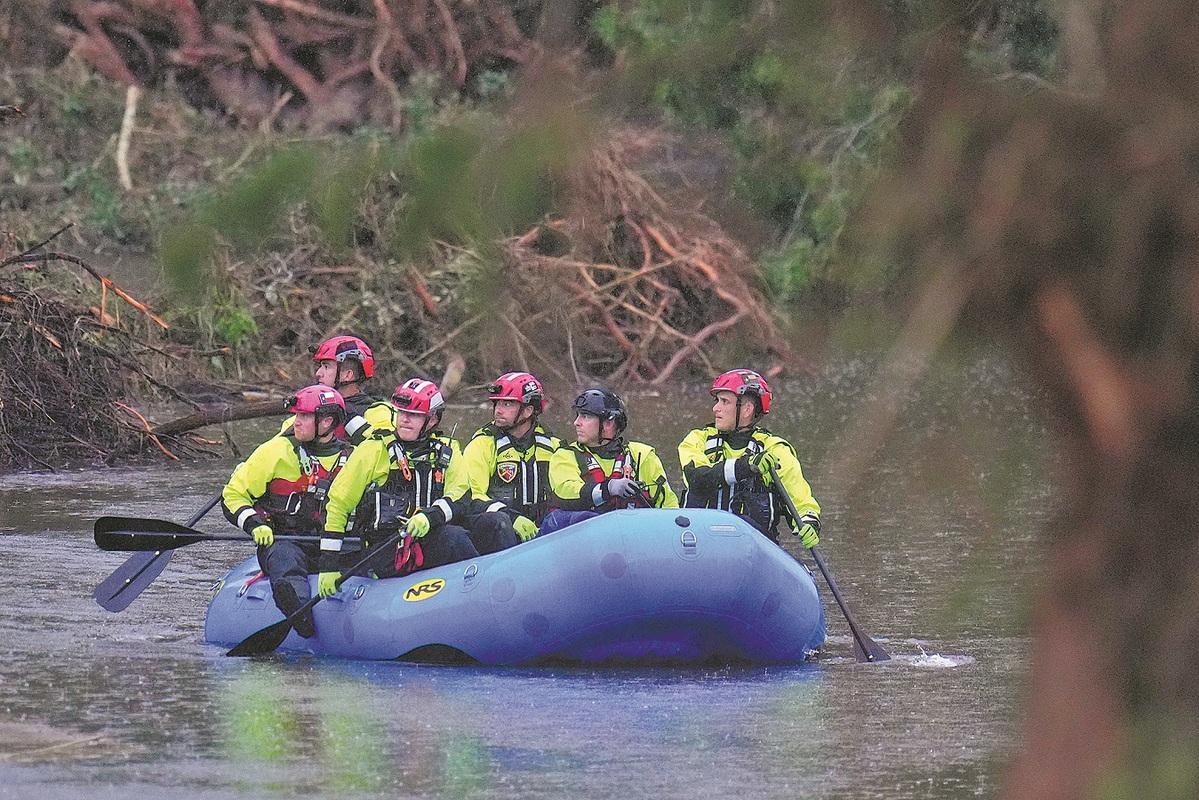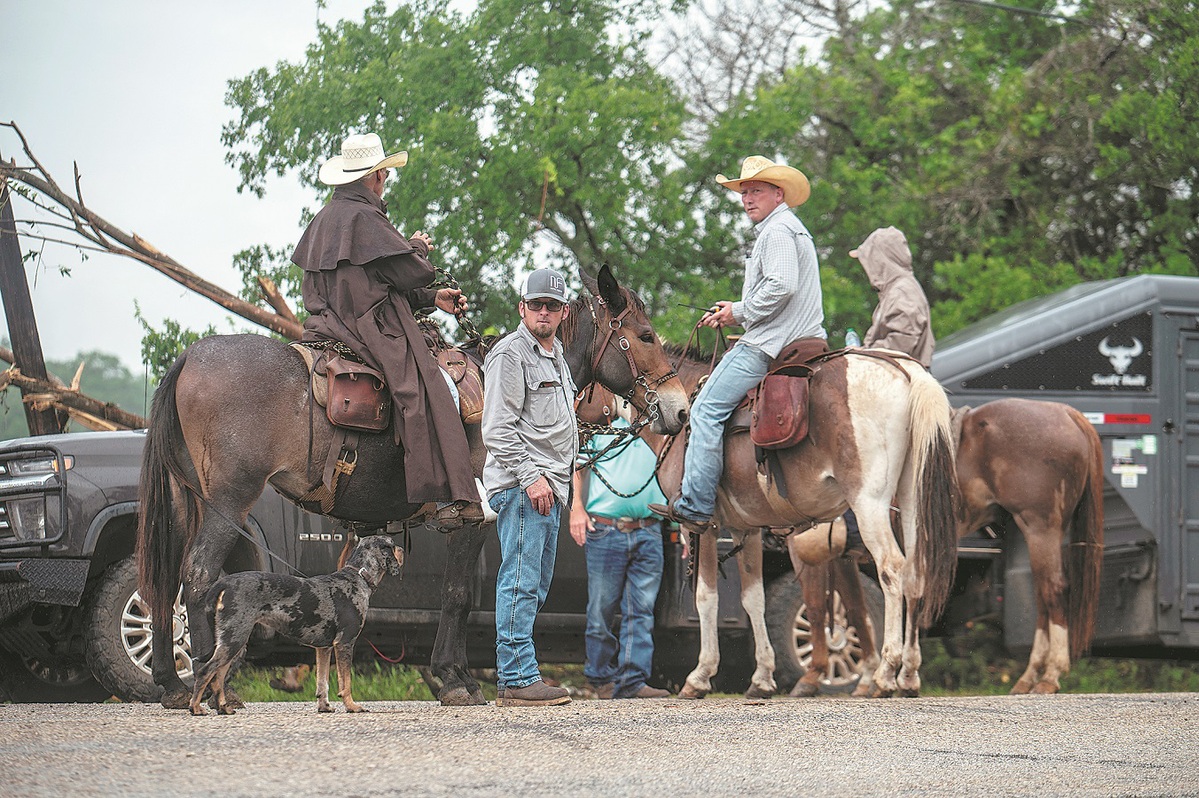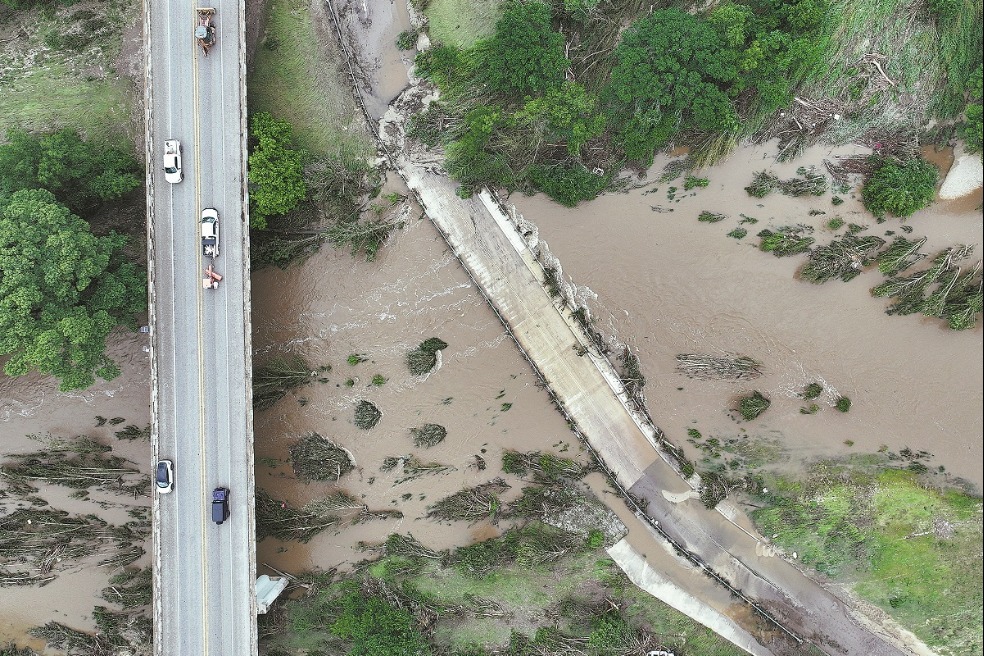Texas floods raise doubts over US weather warnings, response levels
Fears voiced that federal budget cuts are having negative impact, as search for survivors continues


Houston has a problem
Jason Walls, a Houston resident, told China Daily the tragedy unfolding in Central Texas had made him worried about his own safety in Houston.
"We are in the hurricane season right now. I can't imagine how many people would die from an inaccurate weather forecast and inadequate warning because we are much more populated than Central Texas. I am very concerned," Walls said.
He's aware that the NWS Houston/Galveston Office has a serious staff shortage with 11 positions out of 25 vacant. The departures happened after a number of experienced meteorologists left due to the DOGE cuts.
The vacancies include meteorologist-incharge, warning coordination meteorologist, science and operations officer, and port meteorological officer. In addition, four meteorologists, including two senior positions, are also vacant.
Meteorologist Jeff Masters, a former National Oceanic and Atmospheric Administration hurricane hunter, earlier told the Texas Tribune that most of the roles won't be able to be filled in time for the 2025 hurricane season.
"This was done very inefficiently," Masters told the newspaper. "First, all of the probationary employees were fired, then incentives were given to get the most experienced managers out through early retirement. Now they're trying to do some rehiring, and then it's just not being done very efficiently."

Masters said that the local offices across the country have lost critical institutional knowledge and expertise. Nationwide, reduced staff numbers have meant fewer weather balloon launches, therefore fewer data critical to accurate storm modeling is available.
Currently, the Houston office is being helped by members from other NWS locations, and a meteorologist in Oklahoma is helping as an acting meteorologist-incharge for Houston.
"Look at what happened in Kerr County when the NWS local office is without a warning coordination meteorologist," Walls said. "We are in a worse situation in Houston — we don't have a warning coordinator, we don't have one in charge, we are missing almost half of very critical positions. How can we be ready for any weather disaster in the coming months?"
Agencies contributed to this story.























